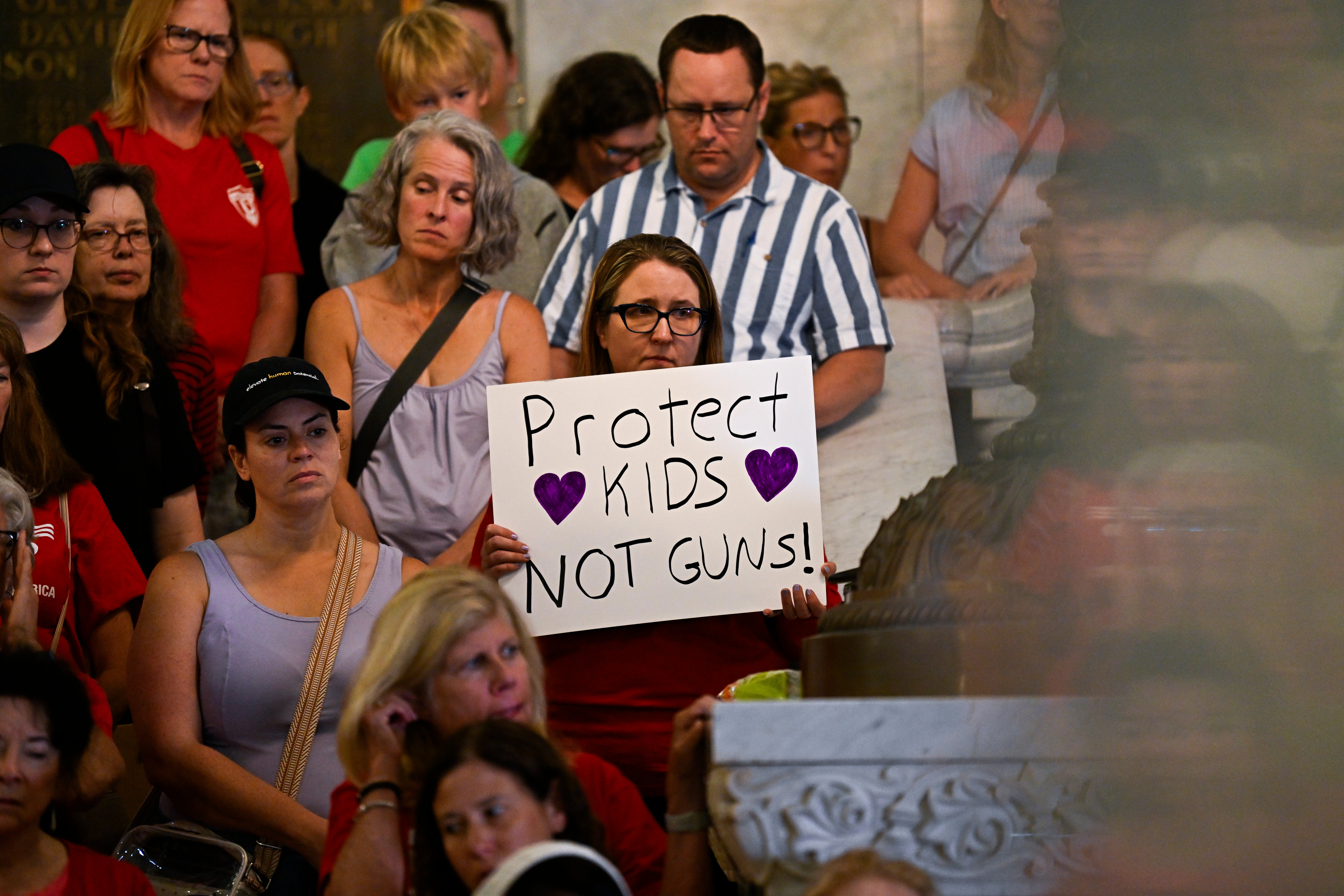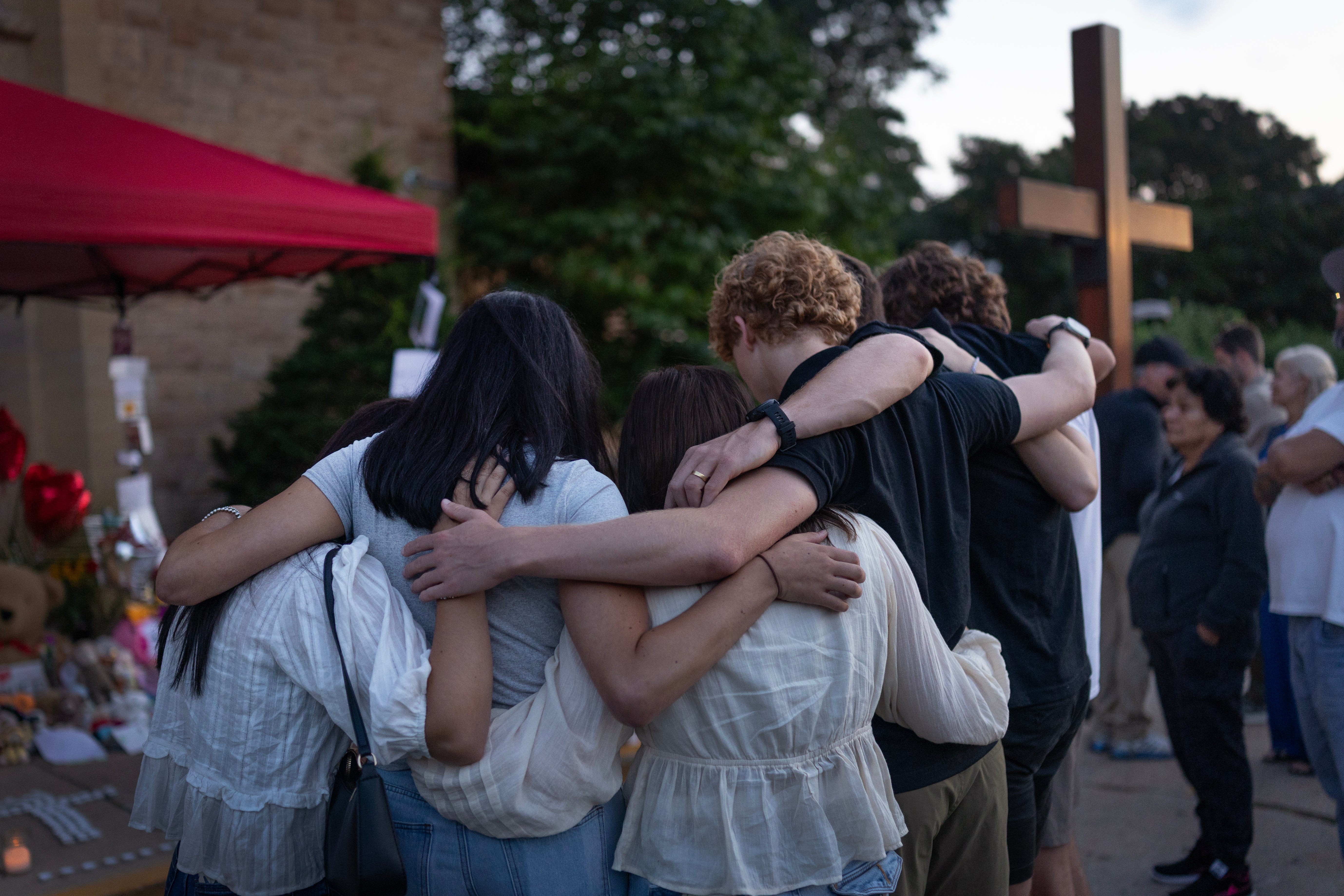A month before the fatal Minneapolis church shooting, the Trump administration cut $18.5 million in funding from a Homeland Security program aimed at identifying and preventing potential mass shooters.
In July, the administration significantly downsized the DHS’ Center for Prevention Programs and Partnerships (CP3), which administers the Targeted Violence and Terrorism Prevention Grant Program. This initiative had previously funded local efforts to identify and prevent potential mass shooters.
The downsizing included reducing the center's staff from 45 full-time employees to just a handful and eliminating numerous contracts.
In Minnesota, this reduction in federal support led to the termination of grants that had been allocated to local agencies, including the Minnesota Department of Public Safety and the Hennepin County Sheriff's Office. These grants, totaling around $800,000, have been instrumental in supporting initiatives aimed at identifying and mitigating potential mass violence threats.
The CP3-funded programs aimed to establish multidisciplinary teams that included mental health professionals, school officials, social workers, and law enforcement officers to assess and manage potential threats.
For instance, the Minnesota Department of Public Safety's grant was intended to create a statewide threat assessment and management team focusing on active shooters and related threats. Similarly, the Hennepin County Sheriff's Office's grant sought to enhance collaboration among various professionals to address mass violence risks.
DHS officials defended the decision in a statement, claiming, “the grant program previously administered by CP3 was nothing more than a slush fund for left-wing ideologies, and did next to nothing to combat actual threats in our communities.”
However, critics argue that these programs were essential in equipping local agencies with the tools needed to prevent violence. Democratic Representative Betty McCollum, along with five other lawmakers, had previously urged DHS in a letter to reinstate the funding, citing the importance of such initiatives in the face of increasing threats to schools and religious institutions.
“Never in our worst nightmares could we have imagined another tragedy occurring so soon,” McCollum said on Friday.

In the aftermath of the shooting, First Lady Melania Trump spoke about the importance of proactive measures to identify and address potential threats.
"The tragic mass killing in Minnesota illuminates the need for preemptive intervention in identifying potential school shooters,” she wrote on X. “Early warning signs are often evident, with many individuals exhibiting concerning behaviors and making violent threats online prior to their actions.”
She continued, "To prevent future tragedies, it is crucial we look into behavioral threat assessments across all levels of society—beginning in our homes, extending through school districts and of course, social media platforms. Being aware of these warning signs and acting quickly can save lives and make American communities safer.”
Even Westman reportedly wondered why authorities hadn’t looked more into their concerning behaviors. According to journal entries, quoted in CNN, Westman had recently experienced a breakup, purchased multiple firearms within a short period, frequented gun ranges, and ceased employment at a local marijuana dispensary.

In one entry, Westman wrote, “I have been showing signs for a while, I need to be stopped! I don’t want to abandon my plan, but I really want to be stopped for the sake of my family.”
Experts have said, while it’s impossible to determine the extent the grants could have prevented the shooting, that the loss of such resources may have left communities more vulnerable.
“This event in Minneapolis was 100 percent preventable. This was exactly the kind of event we could have stopped,” a former DHS employee, speaking to CNN anonymously to avoid jeopardizing their deferred resignation, said.
Two children, 8-year-old Fletcher Merkel and 10-year-old Harper Moyski, were killed in the shooting near the Annunciation Catholic School, and 18 others were injured. Westman died of a self-inflicted gunshot wound following the attack.
A quick look back at this week’s biggest stories
After Minneapolis shooting, there are new calls for gun restrictions, and familiar divisions
All Ukraine’s bold attacks on Russia after nuclear plant hit in Kursk
Chicago mayor signs order to ‘protect our people’ ahead of looming Trump takeover
Handmade cards from classmates comfort a girl wounded in Minneapolis church shooting, aunt says







